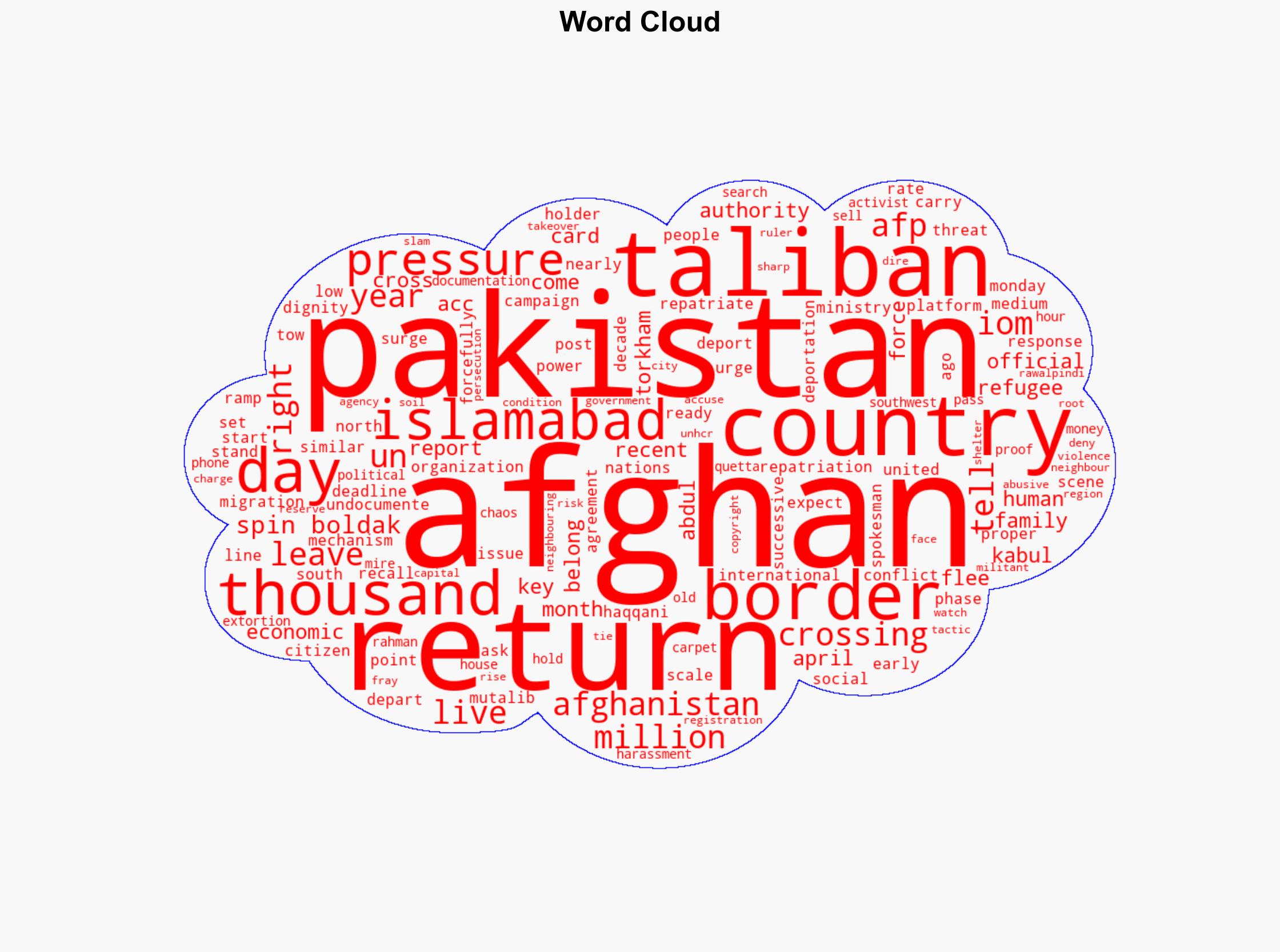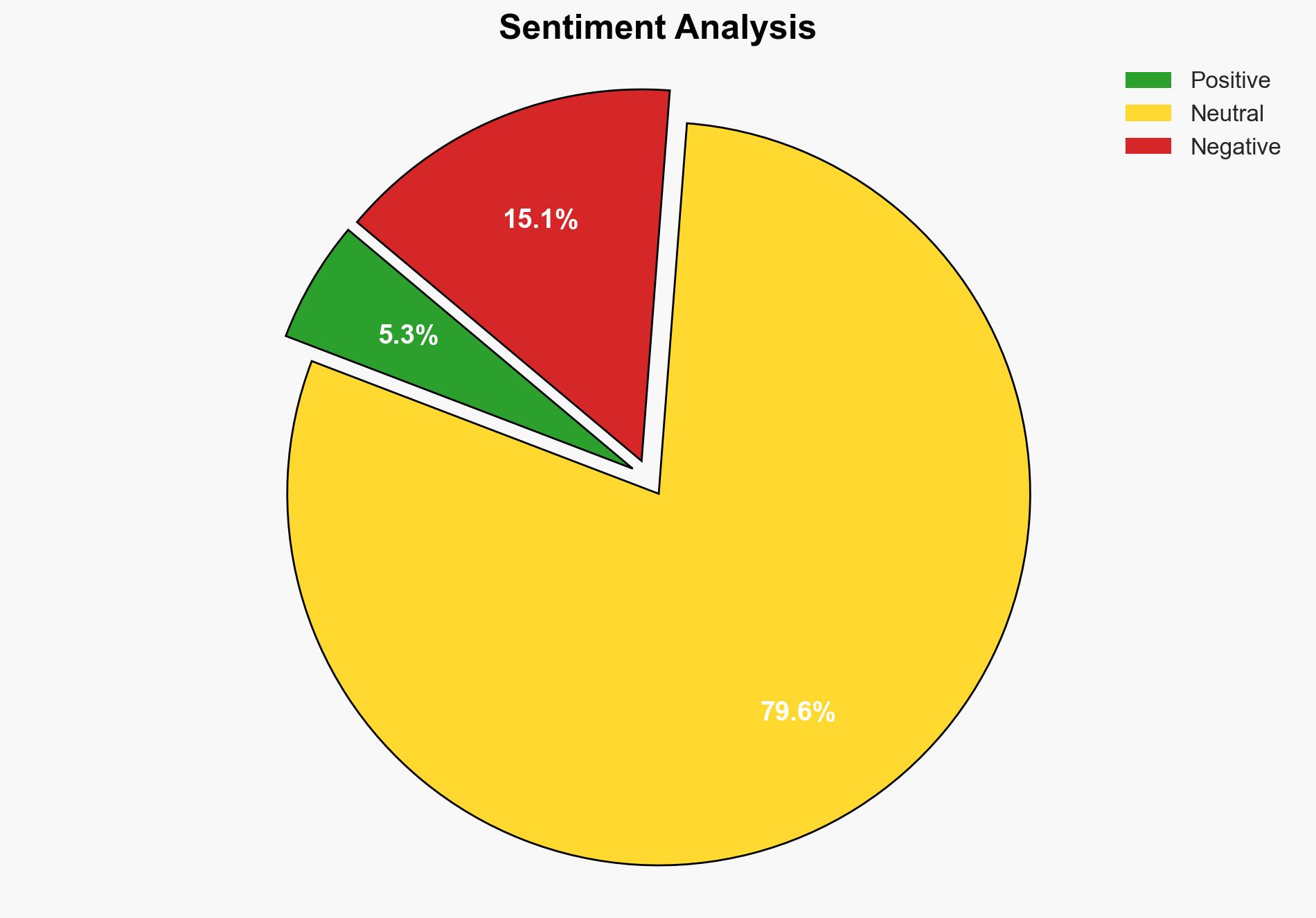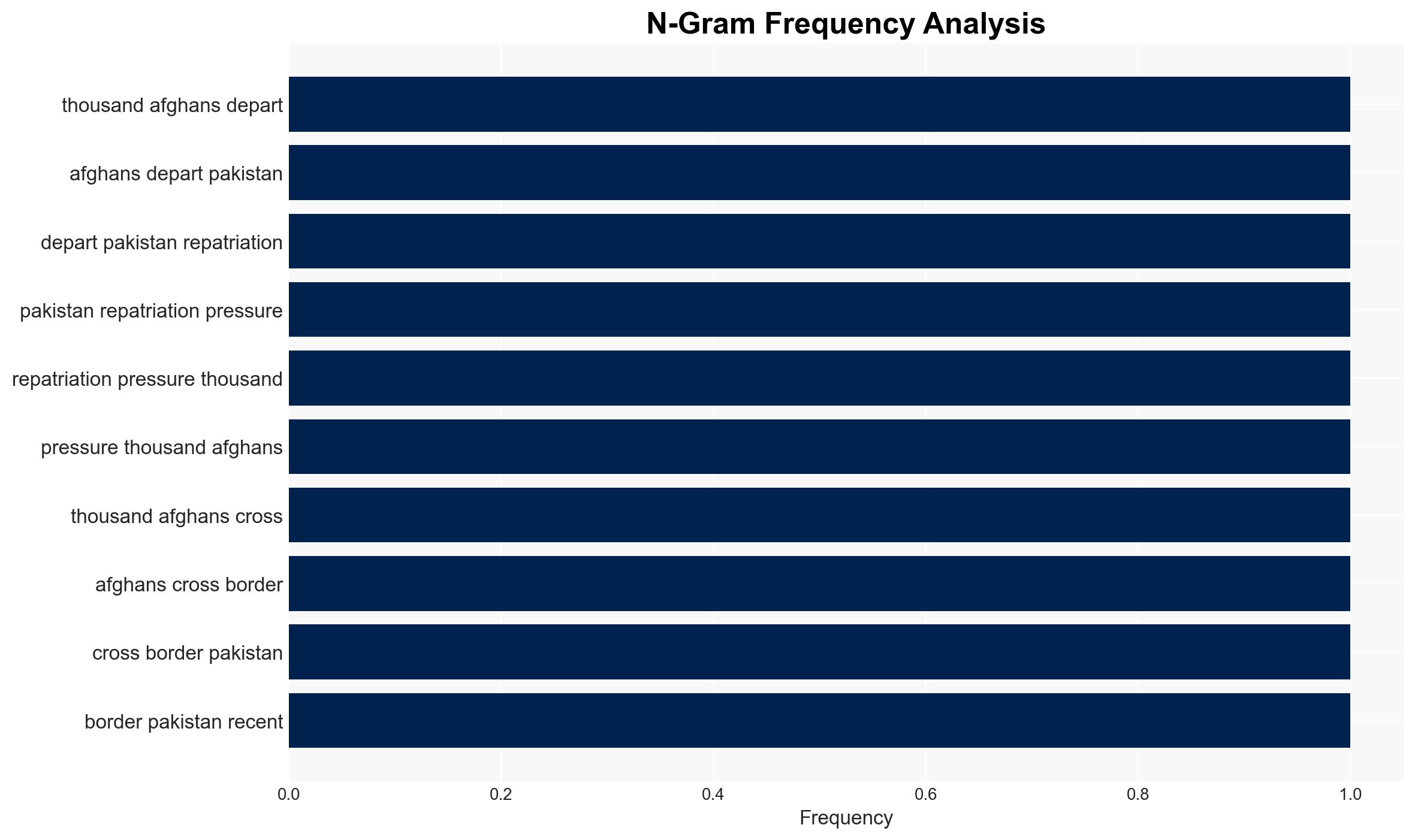Thousands Of Afghans Depart Pakistan Under Repatriation Pressure – International Business Times
Published on: 2025-04-07
Intelligence Report: Thousands Of Afghans Depart Pakistan Under Repatriation Pressure – International Business Times
1. BLUF (Bottom Line Up Front)
Thousands of Afghans are departing Pakistan due to increased repatriation pressure, with a significant number crossing the border recently. The United Nations and other international organizations are monitoring the situation, as Pakistan enforces a deadline for Afghans to leave. This movement is part of a broader campaign by Islamabad to repatriate Afghan nationals. The situation poses humanitarian challenges and risks of regional instability.
2. Detailed Analysis
The following structured analytic techniques have been applied for this analysis:
General Analysis
Recent developments indicate a strategic push by Pakistan to enforce the repatriation of Afghan citizens. The deadline set for Afghans with Afghan Citizen Cards to leave the country has led to a surge in border crossings at key points such as Torkham and Spin Boldak. The United Nations and the International Organization for Migration (IOM) are preparing to respond to the increased movement. Human rights concerns have been raised due to reports of harassment and extortion of Afghans in Pakistan. The situation is exacerbated by the political and economic instability in both countries.
3. Implications and Strategic Risks
The forced repatriation of Afghans carries several strategic risks:
- Potential humanitarian crisis due to inadequate resources and support for returnees in Afghanistan.
- Increased tension between Pakistan and Afghanistan, potentially affecting regional stability.
- Economic strain on Afghanistan as it absorbs a large number of returnees amidst existing challenges.
- Risk of further human rights violations during the repatriation process.
4. Recommendations and Outlook
Recommendations:
- Enhance coordination between Pakistan, Afghanistan, and international organizations to ensure a humane and orderly repatriation process.
- Implement monitoring mechanisms to prevent human rights abuses and provide support to vulnerable populations.
- Encourage diplomatic dialogue to address underlying tensions and promote regional cooperation.
Outlook:
Best-case scenario: Coordinated efforts lead to a smooth repatriation process with minimal humanitarian impact and improved bilateral relations.
Worst-case scenario: Escalation of tensions and humanitarian crisis due to inadequate planning and support.
Most likely outcome: Continued challenges in managing the repatriation process, with periodic diplomatic interventions to mitigate tensions.
5. Key Individuals and Entities
The report mentions significant individuals and organizations involved in the situation:
- Abdul Mutalib Haqqani
- Abdul Rahman
- United Nations
- International Organization for Migration (IOM)
- Human Rights Watch




